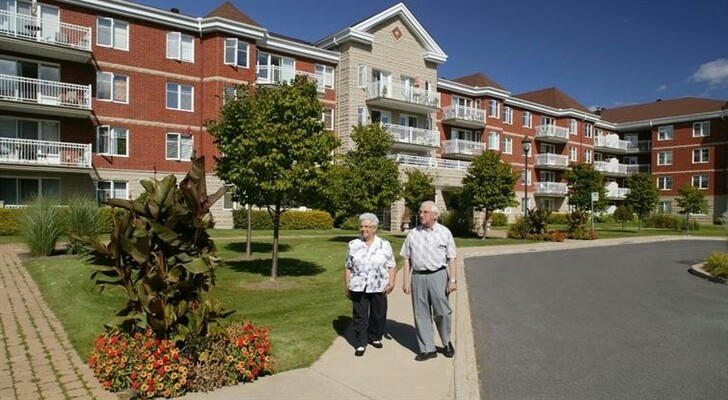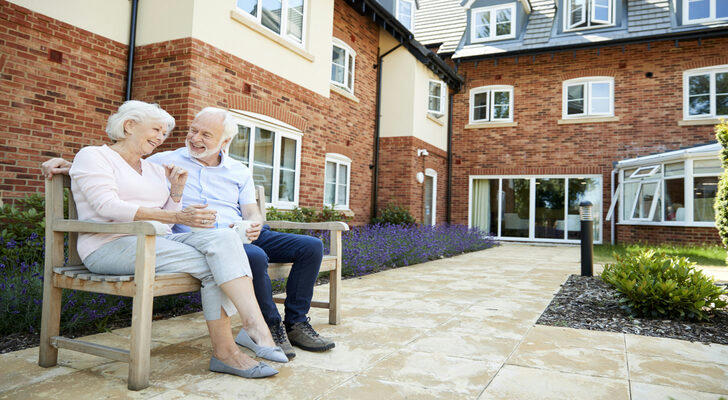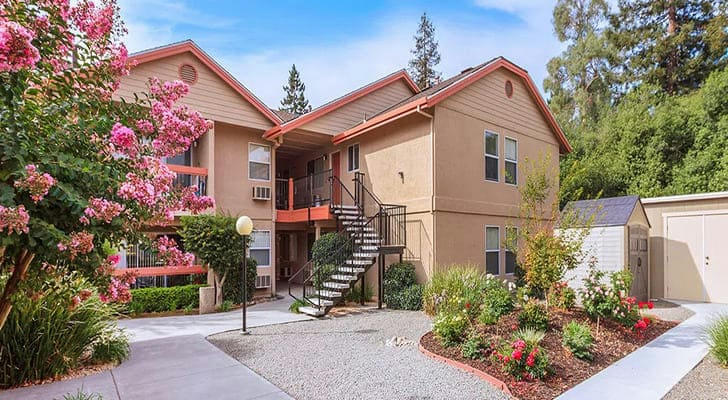Senior Apartments: Choosing The Right Home For Your Golden Years

As people get older, the demand for appropriate housing for seniors grows. Senior housing is a popular option for those looking for a comfortable place to live in retirement. When choosing house, it's important to consider the different types of senior housing and the benefits they offer.
What Are Senior Apartments?
Senior apartments are designed for older adults, usually 55 and above, who can live independently. These apartments can range from completely independent living communities to those with a bit of help for basic needs. They are different from assisted living facilities, which offer more hands-on care and medical support. Senior apartments provide a mix of privacy and community, allowing seniors to enjoy their independence without dealing with home tasks like yard work and repairs.
Many of these apartments have features, such as single-story layouts to avoid stairs, wider doorways, and grab bars in bathrooms for extra safety. These apartments also often include social activities, fitness programs, and shared spaces to help build a strong sense of community among residents.
A nearly new car with less than 10,000 miles is often priced much higher than a used car with around 50,000 miles over three years. However, a used car with 50,000 to 60,000 miles may still have excellent mechanical performance, without affecting the experience, and it may have a significant price advantage, making it more cost-effective.
Different Types of Senior Apartments
When looking for a senior apartment, it is important to note that there are several types available. Each type of senior apartment offers different services, costs, and is aimed at various age groups.

1.Independent Living Apartment
Independent living apartments offer private living spaces, typically one or two bedrooms. These apartments come with basic amenities like gyms, restaurants, social activities, and maintenance services, but they don’t include help with daily living tasks. They are ideal for elderly people who need less additional help and can handle their daily activities on their own.
2.Self-Living Apartment
This type of apartment offers more amenities and services. This includes cleaning services, dining options, and transportation services, but does not provide full-day personal care. It is suitable for seniors who need some additional services to help with daily life, but are still able to perform most self-care activities.
3.Assisted Living Apartment
This apartment offer more support for seniors who need help with daily activities. They provide services like meal assistance, personal care, medication management, and emergency help. Regular health checks and social activities are also common. They are a good option for seniors who need some help with daily living but don’t require full-time care.
Ms. Li, 65, has high blood pressure. While she can still move around by herself, she needs regular medical checkups and some help with daily activities. She also needs a safe place in case she has an emergency at home. She has a fixed retirement income, and an assisted living apartment is a good option if her budget allows.
4.Nursing Home
This type of home provides a high level of medical and nursing support. It usually has specialized medical staff and equipment. It has professional nursing care, medical support, physiotherapy, 24-hour emergency care and personal care services. It is suitable for elderly people who need full-time medical care and support. Especially those residents with serious health problems or limited mobility.

Key Factors in Choosing Senior Apartment
When searching for a senior housing apartment, there are several factors worth considering.
Location and environment
It is best to choose an apartment close to hospitals, clinics and shopping malls for convenient medical treatment and daily shopping. Make sure the community where the apartment is located is quiet and safe to ensure the quality of life and sense of security of the elderly.
Facilities and Services
Check if the apartment has basic facilities like wheelchair-accessible bathrooms and wide hallways to ensure it’s convenient and safe. Also, find out if the apartment offers extra services like meal delivery, cleaning, and transportation to help with daily needs.
Apartment Fees
Understand the costs of different apartment types, including monthly rent, one-time fees, and extra service charges. Make sure all fees are clear and fit within your budget. Seniors should make a detailed budget that takes into account long-term expenses and potential cost changes. It's a good idea to talk to a financial advisor to make sure the apartment you choose matches your financial situation.
For example, Ms. Wang, 68, wants to find a suitable senior apartment. She has a monthly income of $3,500 and savings of $150,000. She compares two options: Apartment A costs $4,000 a month, while Apartment B costs $3,200 a month, plus about $2,000 for extra services. After calculating, she finds that Apartment A would go over her annual budget by $6,000, but Apartment B fits within her budget, leaving her with a $1,600 surplus. To ensure she stays financially stable in the long run, Ms. Wang decides on Apartment B and plans to talk to a financial advisor about her financial arrangements and long-term care insurance.

Conclusion
Choosing the right senior apartment is important for ensuring comfort and meeting your long-term needs. You should check out the facilities, services, and costs of different apartments to find the one that’s best for you. By considering your health, living requirements, and budget, you can make a smart choice that will provide you with a high quality of life and the support you need.
